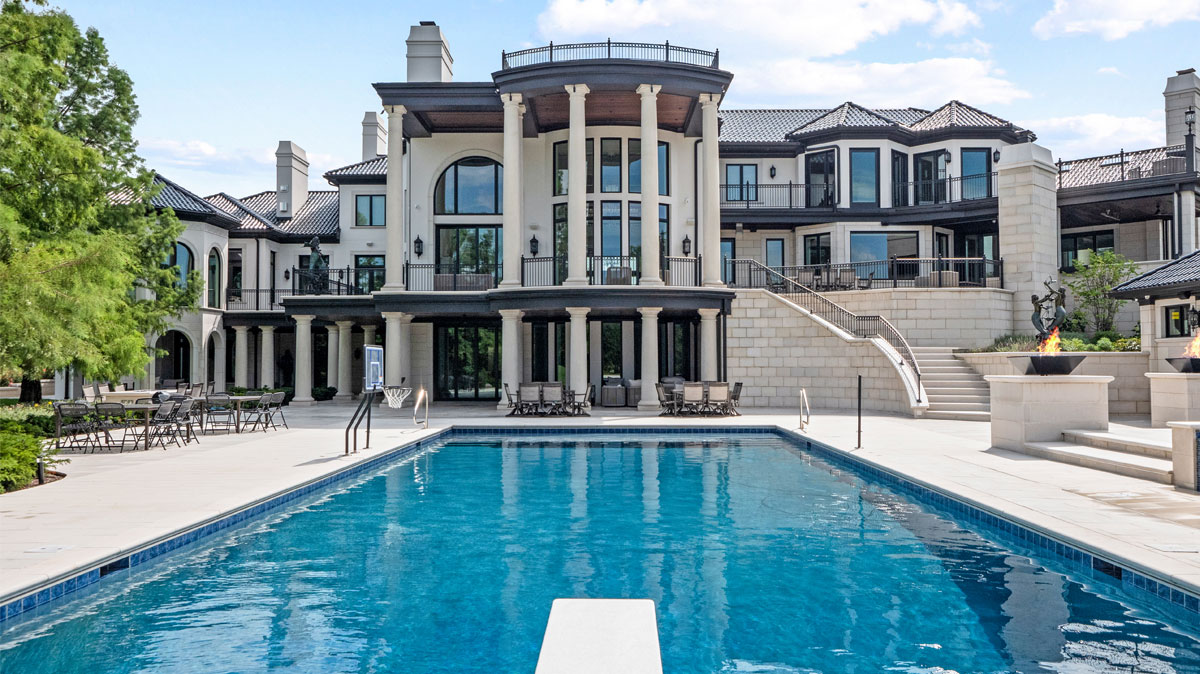
For many homeowners, installing a swimming pool is the ultimate dream—a personal oasis for relaxation, exercise, and entertaining. But aside from the lifestyle benefits, you might be wondering: can a swimming pool actually increase the value of your home? The answer isn’t a simple yes or no, as several factors come into play. In this blog post, we’ll explore how a swimming pool can affect your property value and what you should consider before making the investment.
The Potential Impact on Home Value
A well-designed and well-maintained swimming pool can indeed add value to your home, but how much value it adds depends on several key factors, including location, pool type, and the preferences of potential buyers.
1. Location, Location, Location
- Warm Climates: In areas where the weather is warm year-round, such as Florida, California, or Arizona, pools are highly desirable and can significantly increase the value of a home. Buyers in these regions often expect homes to have a pool, making it a key selling point.
- Seasonal Climates: In colder regions or areas where summer is short, the impact of a pool on home value is less clear. While some buyers may appreciate having a pool for a few months of the year, others may see it as unnecessary maintenance for most of the year.
- Neighborhood Expectations: If you live in a neighborhood where pools are common, not having one can actually hurt your home’s resale value. Conversely, in neighborhoods where pools are rare, adding one may not bring the expected return.
2. Pool Type and Quality
- Inground Pools: Inground pools, especially those made from durable materials like concrete or fiberglass, tend to add more value than above-ground pools. A well-landscaped and aesthetically pleasing inground pool can be seen as a luxurious amenity that appeals to buyers.
- Above-Ground Pools: While more affordable, above-ground pools generally don’t add significant value to a home. In some cases, they may even detract from the property’s appeal, as they can be viewed as temporary or less attractive.
- Pool Design: High-quality pools with features like waterfalls, integrated lighting, and energy-efficient heating systems may appeal to luxury buyers and help differentiate your property from others on the market.
3. Buyer Preferences
- Family Appeal: Families with children or those who enjoy outdoor entertaining may view a pool as a significant asset. A well-maintained pool in a family-friendly neighborhood can be a major selling point.
- Maintenance Concerns: For some buyers, the idea of maintaining a pool can be a deterrent. Pools require regular cleaning, chemical treatments, and potential repairs, which could cause potential buyers to see it as more of a liability than a luxury.

Factors to Consider Before Installing a Pool
While a pool can add enjoyment to your home life, it’s important to weigh the financial aspects carefully before making the decision to install one. Here are some important considerations:
1. Installation Costs
- High Initial Investment: The average cost of installing an inground pool can range from $100,000 to $200,000 or more, depending on the size, materials, and additional features like heating, decking, and landscaping. Before committing, make sure the potential increase in home value justifies this investment.
2. Ongoing Maintenance
- Maintenance Expenses: Pools require ongoing maintenance, including cleaning, chemical balancing, and equipment repairs. Homeowners can expect to spend around $1,000 to $3,000 annually on pool maintenance, which might be a factor for buyers considering the long-term costs.
- Energy Costs: If your pool is heated, energy bills will increase. Energy-efficient pool systems, such as solar heating, can help mitigate these costs, but it’s something to factor into the overall budget.
3. Insurance and Liability
- Increased Insurance Premiums: A pool increases your homeowner’s insurance premium due to the increased liability risk. Be sure to check with your insurance provider to understand the additional costs and ensure that your pool is adequately covered.
- Liability Risks: Pools can be seen as a safety hazard, particularly for families with young children. Installing a pool fence and other safety measures is often required by law and can give buyers peace of mind.
4. Resale Timing
- Consider the Market: If you’re planning to sell your home in the near future, installing a pool may not yield an immediate return on investment. However, if you plan to stay in your home for several years, the pool can enhance your family’s enjoyment and appeal to future buyers.
How Much Value Can a Pool Add?
So, how much value can a pool add to your home? According to real estate experts, a well-maintained inground pool can boost a home’s value by as much as 5% to 8%. However, this increase depends heavily on your location, the quality of the pool, and the preferences of potential buyers. In some cases, a pool may help a home sell faster, even if it doesn’t significantly raise the asking price.
Is a Pool Worth the Investment?
Adding a swimming pool to your home can enhance your lifestyle, provide a fun space for family and friends, and, in some cases, increase your home’s value. However, whether it’s worth the investment depends on several factors, including your location, the type of pool, and the preferences of potential buyers. It’s important to do your research and consult with real estate professionals to understand how a pool might impact your property value in your specific market.
If you’re considering adding a pool or need help with pool design and maintenance, contact Sunset Pools & Spas. Our team of experts can help you create the perfect backyard oasis, tailored to your needs and budget.